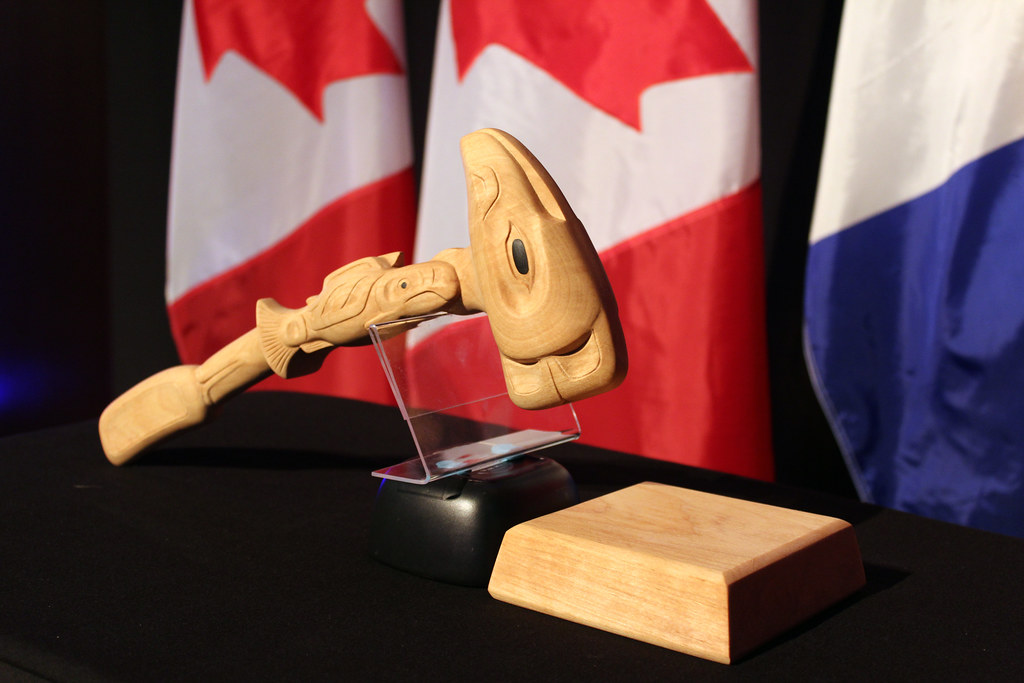 Vivian Motzfeldt, Minister of Foreign Affairs and Research for Greenland, representing the Kingdom of Denmark, receives the symbol of the Arctic Council chairmanship from Espen Barth Eide, Minister of Foreign Affairs for Norway. (Photo: Minetta Westerlund / Arctic Council Secretariat)
Vivian Motzfeldt, Minister of Foreign Affairs and Research for Greenland, representing the Kingdom of Denmark, receives the symbol of the Arctic Council chairmanship from Espen Barth Eide, Minister of Foreign Affairs for Norway. (Photo: Minetta Westerlund / Arctic Council Secretariat)On May 12, 2025, Denmark officially took over the rotating chairmanship of the Arctic Council from Norway. In a historic move, Greenland’s Foreign Affairs Minister, Vivian Motzfeldt, was appointed as the new chair, highlighting Greenland’s growing role in Arctic governance.
Greenland’s leadership in the Arctic Council underscores its aspirations for greater autonomy and influence in regional affairs. The appointment of Kenneth Høegh as Greenland’s first Arctic ambassador further emphasizes this commitment.
The Arctic Council’s new chairmanship comes at a time of heightened geopolitical tensions. The ongoing conflict in Ukraine has strained relations with Russia, leading to a suspension of cooperation within the Council. Additionally, U.S. President Donald Trump’s repeated interest in acquiring Greenland has added to the complexity of Arctic diplomacy.
China’s growing interest in the Arctic, particularly in Greenland, has raised concerns among Arctic nations. Although China has been involved in Arctic affairs as an observer state since 2013, its attempts to increase influence through infrastructure projects in Greenland have been met with resistance.
Denmark’s chairmanship program for 2025–2027 focuses on environmental protection, sustainable development, and the integration of Indigenous knowledge into Arctic governance. The program aims to strengthen cooperation among Arctic states while addressing the challenges posed by climate change and geopolitical tensions.
As Denmark and Greenland lead the Arctic Council through this complex period, their ability to balance environmental priorities with geopolitical realities will be crucial. The success of their chairmanship may set the tone for the future of Arctic cooperation and governance.
For further reading:
